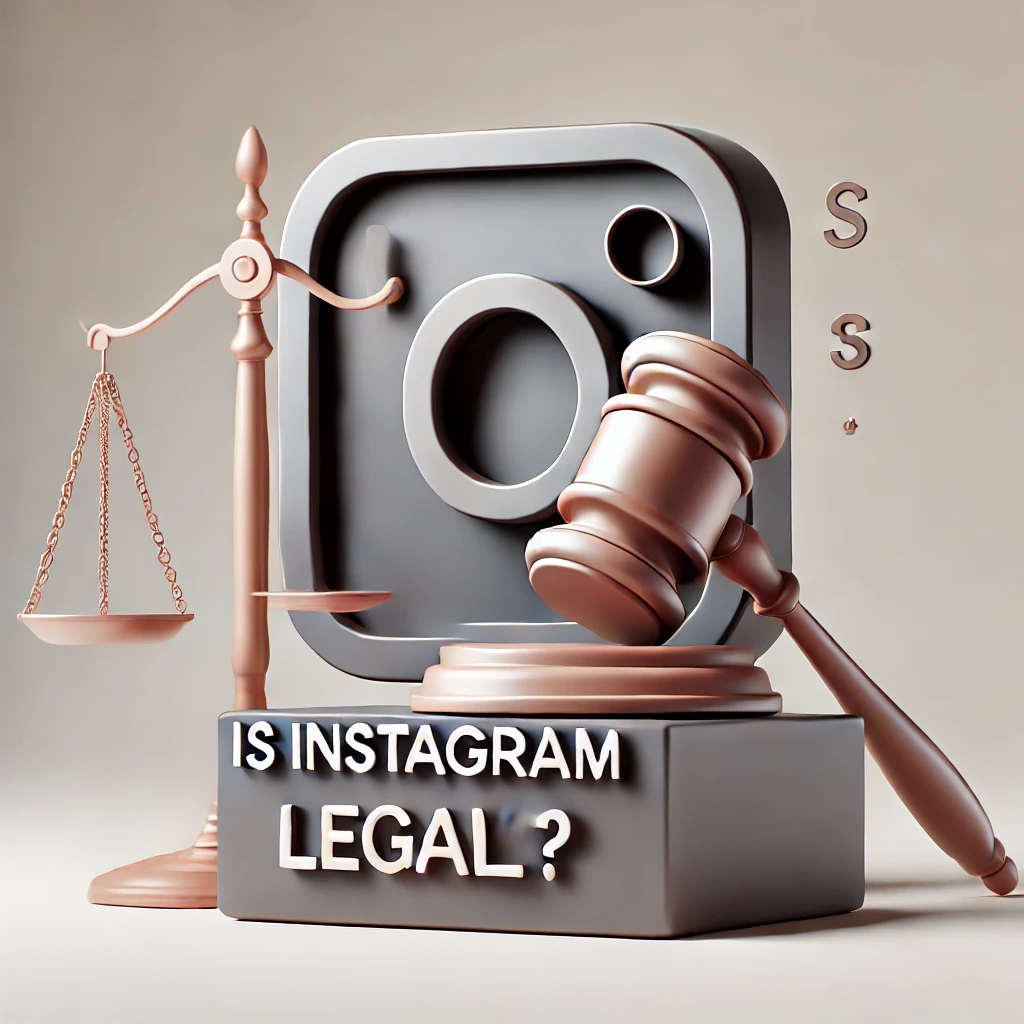Instagram has become a treasure trove of valuable data for businesses, researchers, and marketers. However, the practice of scraping this data raises important legal and ethical questions. Let's dive into the complex world of Instagram scraping and explore its legal implications.
Understanding Instagram Scraping
Instagram scraping involves using automated tools or scripts to extract publicly available data from the platform. This can include user profiles, posts, comments, likes, and other engagement metrics. While the process itself is technically straightforward, its legality is far from clear-cut.
The Legal Gray Area
Instagram scraping exists in a legal gray area. There is no specific law that explicitly prohibits or allows web scraping in general. However, several factors come into play when determining the legality of Instagram scraping:
Terms of Service Violations
Instagram's Terms of Service explicitly prohibit scraping without prior written permission. The platform states: "You must not crawl, scrape, or otherwise cache any content from Instagram including but not limited to user profiles and photos." This clause puts most scraping activities in direct violation of Instagram's terms.
Copyright Considerations
Many Instagram posts contain copyrighted material. Scraping and reproducing this content without permission could potentially infringe on copyright laws.
Data Privacy Concerns
Scraping personal data from Instagram profiles may violate data protection regulations like the GDPR in the European Union. Even if the data is publicly available, collecting and processing it without user consent can be problematic.
Recent Legal Precedents
While no specific laws address Instagram scraping, recent court cases have provided some clarity on web scraping in general:
HiQ vs. LinkedIn
In 2019, the Ninth Circuit Court of Appeals ruled that scraping publicly available data from websites does not violate the Computer Fraud and Abuse Act (CFAA), as long as the scraper hasn't circumvented any access controls. This decision suggests that scraping public Instagram data might not be considered "hacking" under federal law.
Facebook vs. Power Ventures
In contrast, a 2016 case ruled that scraping data after receiving a cease-and-desist letter could violate the CFAA. This highlights the importance of respecting a platform's expressed wishes regarding data collection.
Potential Legal Risks
While scraping public Instagram data may not always lead to legal action, there are several risks to consider:
- Account Suspension: Instagram may suspend or terminate accounts engaged in scraping activities.
- Cease-and-Desist Orders: The platform could issue legal notices demanding an end to scraping activities.
- Civil Lawsuits: In extreme cases, Instagram or affected users might pursue civil litigation for damages.
- Regulatory Fines: Violating data protection laws could result in significant fines from regulatory bodies.
Ethical Considerations
Beyond legal concerns, there are ethical issues to consider when scraping Instagram data:
- User Privacy: Even if data is public, users may not expect or consent to their information being collected en masse.
- Data Accuracy: Scraped data can quickly become outdated, potentially leading to inaccurate analyses or decisions.
- Platform Stability: Aggressive scraping can strain Instagram's servers, potentially affecting user experience.
Best Practices for Legal and Ethical Scraping
If you decide to proceed with Instagram scraping, consider these best practices to minimize legal and ethical risks:
- Respect Rate Limits: Implement reasonable delays between requests to avoid overloading Instagram's servers.
- Use Official APIs: Whenever possible, use Instagram's official API for data collection. While more limited, it ensures compliance with the platform's policies.
- Anonymize Data: If collecting personal information, anonymize it as soon as possible to protect user privacy.
- Obtain Consent: For research purposes, consider obtaining explicit consent from users whose data you're collecting.
- Limit Data Collection: Only scrape the data you absolutely need for your specific use case.
- Monitor Legal Developments: Stay informed about changes in laws and court decisions related to web scraping.
Alternatives to Scraping
Given the legal and ethical complexities, consider these alternatives to direct Instagram scraping:
- Official Instagram API: While more limited, it provides a sanctioned way to access certain data.
- Third-Party Data Providers: Some companies offer Instagram data collected through approved methods.
- Manual Data Collection: For smaller datasets, manual collection may be more appropriate and less risky.
- User-Generated Content: Encourage users to voluntarily share their Instagram data for your specific purpose.
Conclusion
The legality of Instagram scraping remains a complex issue. While scraping publicly available data may not always lead to legal consequences, it clearly violates Instagram's Terms of Service and raises significant ethical concerns.
Businesses and researchers interested in Instagram data should carefully weigh the potential benefits against the legal and reputational risks. When in doubt, it's always best to consult with legal professionals and explore alternative data collection methods that align with Instagram's policies and respect user privacy.
Ultimately, as the digital landscape continues to evolve, so too will the legal and ethical considerations surrounding data scraping. Staying informed and prioritizing responsible data practices will be crucial for anyone looking to harness the power of social media data in the years to come.
